
1/ Normally I do threads on official documents like legislation, or think tank papers, but today I have been asked to debunk viral online claims about the scary "Lisbon treaty 2022".
Tl;dr: it's bat****
Tl;dr: it's bat****

2/ Here are the main claims being made. Different versions make different further claims; I will get back to them.
First, notice that there's no link to the Scary Lisbon Treaty 2020, or quotes from the text.

First, notice that there's no link to the Scary Lisbon Treaty 2020, or quotes from the text.

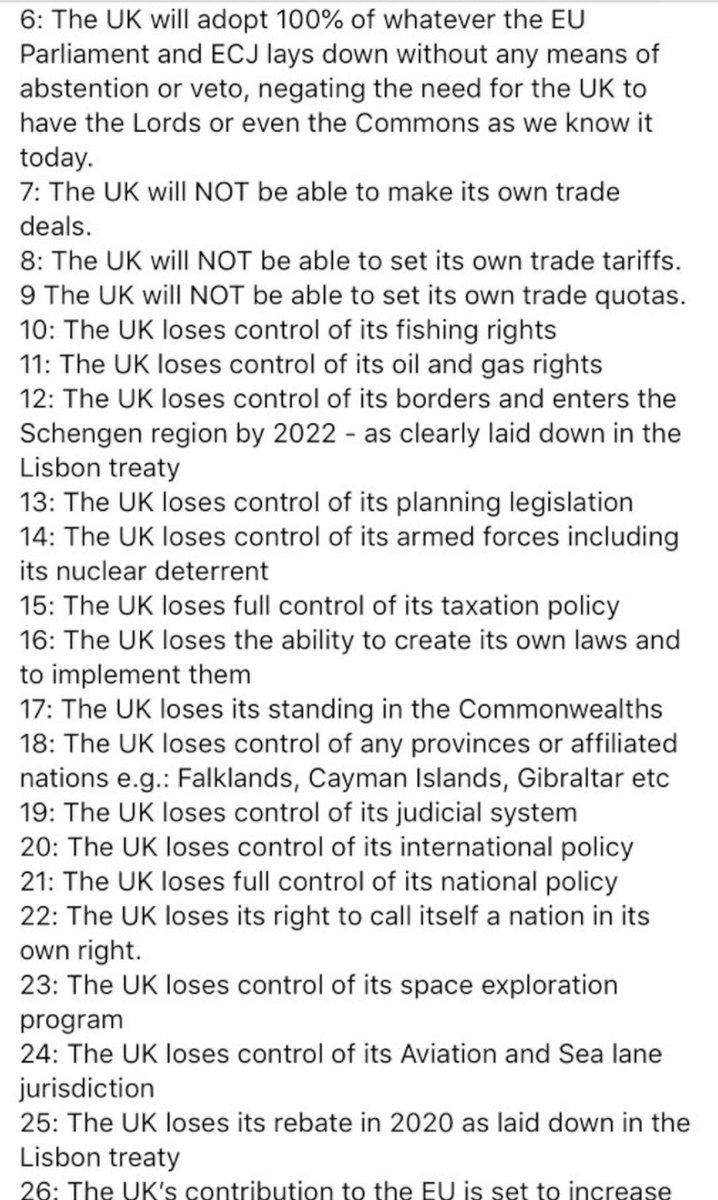
3/ The actual Lisbon treaty was signed in 2007 and came into force in 2009. There have been no major amendments since. It makes no reference to "2020" or "2022". 



4/ As for no abstentions or vetoes, the words "unanimous" or "unanimity" appear in the Treaties as revised by the Lisbon treaty over 100 times. Vetoes are retained for issues like tax, accession of new Member States, and Treaty amendments, including removal of vetoes. 



5/ Abstentions still exist too: under the foreign policy rules, in general for the European Council and the Council, and as regards possible sanctions for breach of the rule of law, etc. 







6/ As for point 2, the Treaties use the word "federal" only when referring to the official name of Germany; and the CJEU Full Court has confirmed that the EU is not a State. 


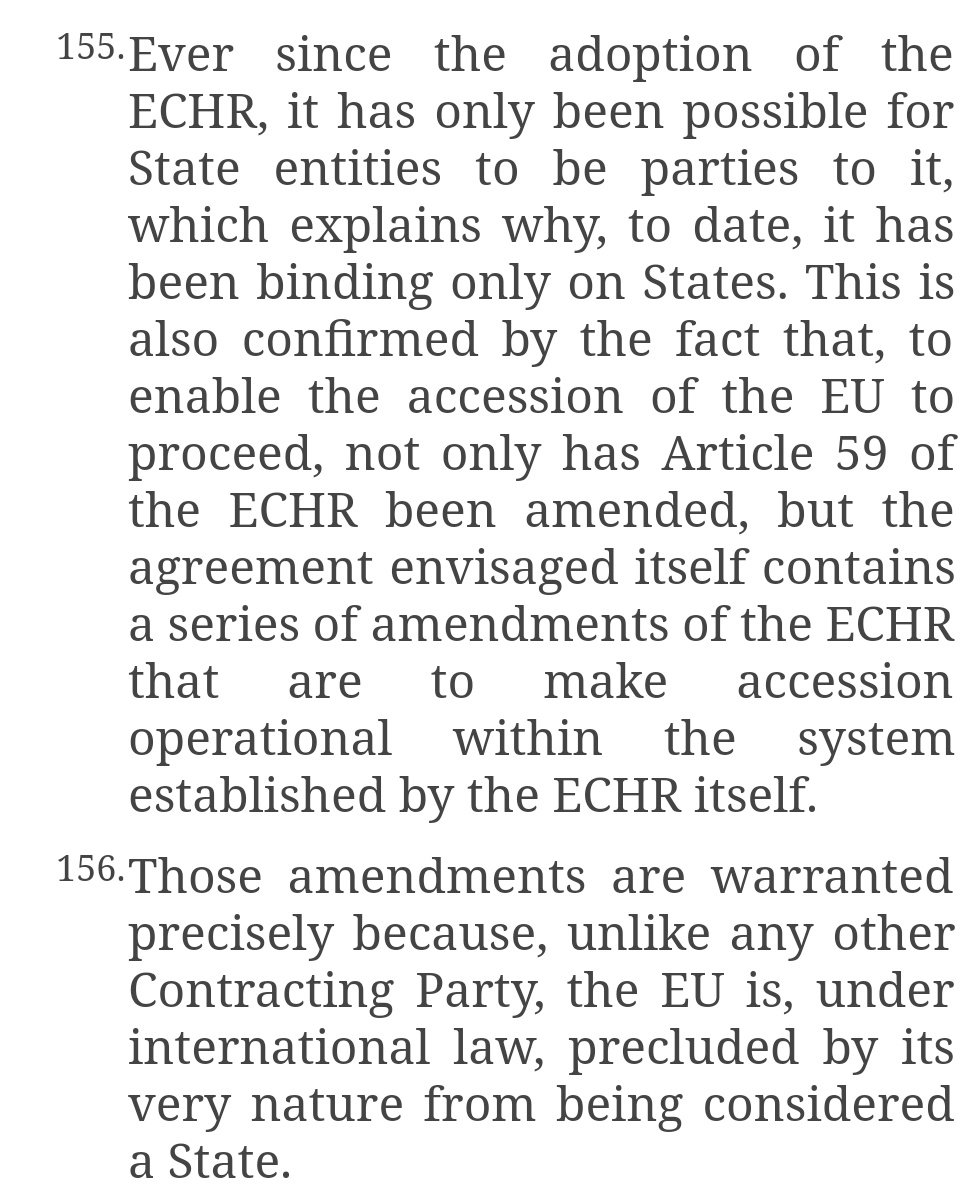
7/ Point 3: No obligation to join the single currency within two years. Rather there's a review every two years of whether the criteria to join are satisfied. UK has an opt out from the single currency. 



8/ Point 4: the Treaties say nothing about moving stock exchanges.
Point 5: Primacy of EEC (now EU) law was established in 1960s CJEU case law. The Lisbon treaty says nothing new.

Point 5: Primacy of EEC (now EU) law was established in 1960s CJEU case law. The Lisbon treaty says nothing new.

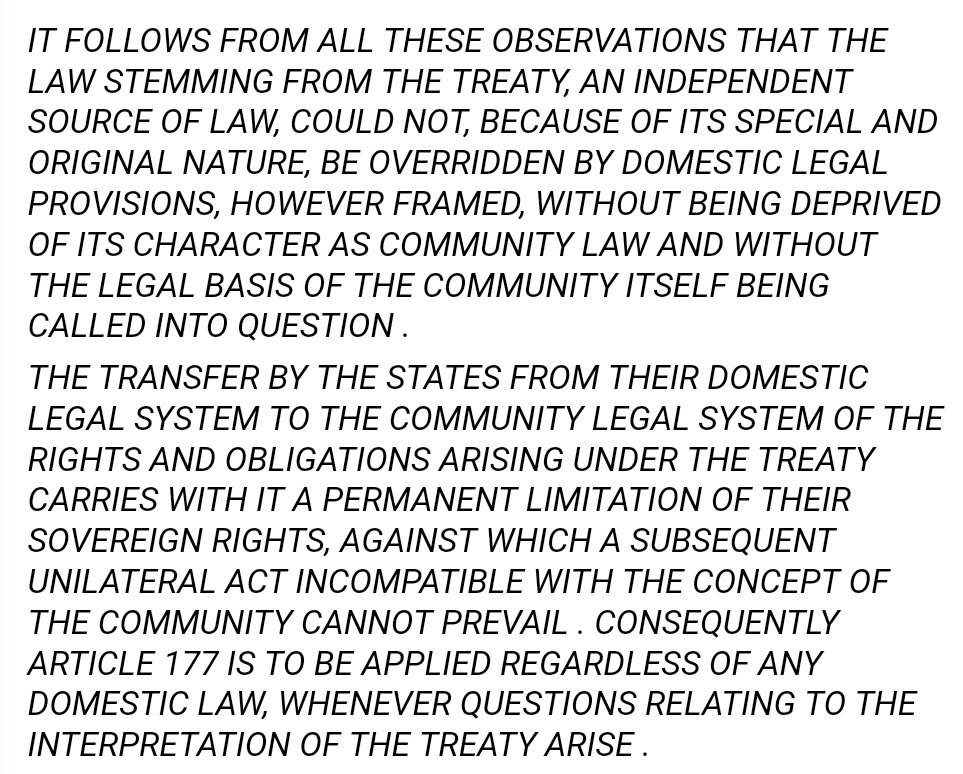
9/ Points 6 and 12: Abstentions and vetoes aren't abolished, as noted already. As well as the single currency opt out, the UK has opt outs from Schengen and justice and home affairs laws. 



10/ Points 7-10: Common Commercial Policy & fisheries are long-established exclusive EU competences. Lisbon treaty extended exclusive competence to trade issues *besides* goods in 2009; that's different from the claim in the post.
Point 11: Member States decide oil & gas rights
Point 11: Member States decide oil & gas rights

11/ Point 13: unanimous voting on planning law.
Points 14, 17, 18 and 20: unanimous voting on foreign policy and defence. The Queen can still visit the "Commonwealths" without Juncker's approval.


Points 14, 17, 18 and 20: unanimous voting on foreign policy and defence. The Queen can still visit the "Commonwealths" without Juncker's approval.

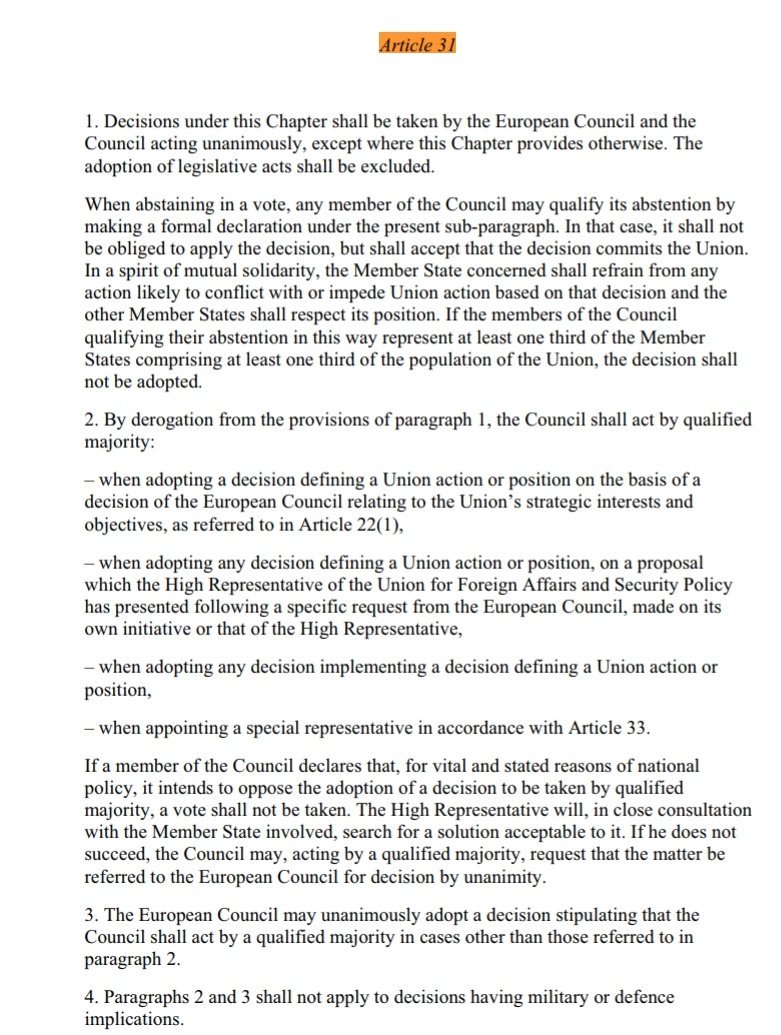

12/ Point 15: see last tweet for unanimous voting on environmental tax. Here's all the other unanimous voting on tax.
When I mentioned this during the referendum campaign, I was called a Dunt. Stay classy, conspiracy theorists!



When I mentioned this during the referendum campaign, I was called a Dunt. Stay classy, conspiracy theorists!
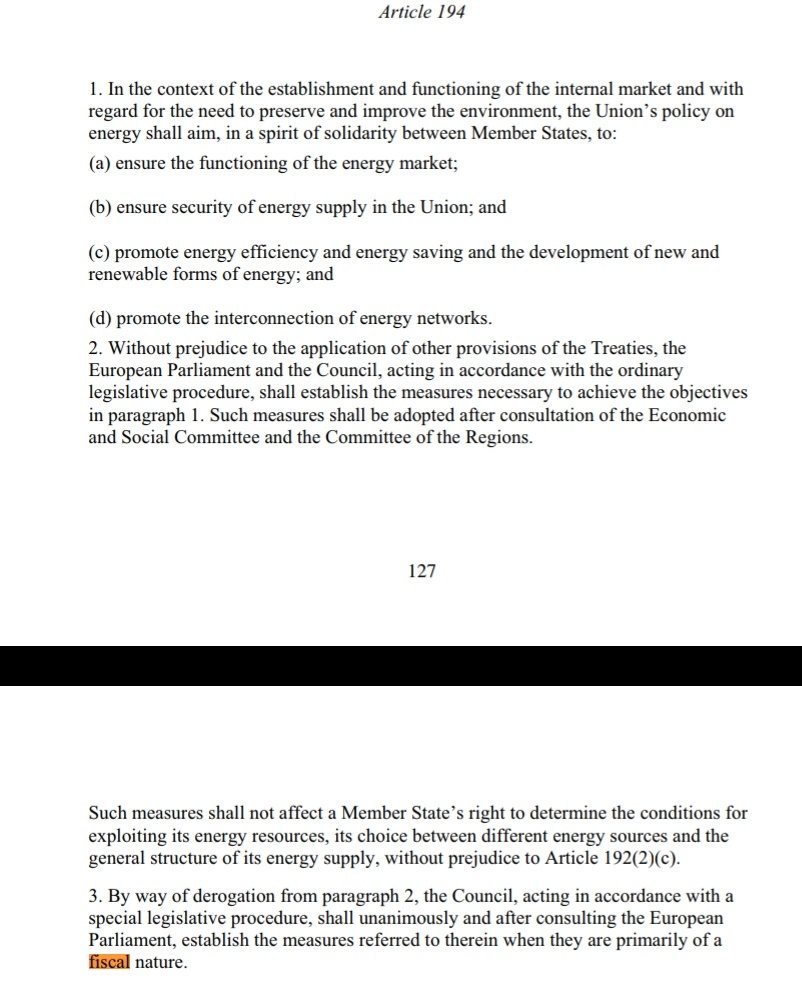



13/ The Commission has proposed extension of majority voting on tax and parts of foreign policy (human rights and sanctions). An "emergency brake" would still apply to the latter. But these changes would have to be approved unanimously. They don't happen automatically in 2022.
14/ Points 16, 19, 21 and 22: Variations of "tHe Uk wILl CeaSe to exISt". Give over. Anyway, the opt out from justice issues was mentioned already.
15/ Point 23: EU measures on space exclude harmonisation of national law
Point 24: Lisbon treaty changes nothing to do with transport
Point 24: Lisbon treaty changes nothing to do with transport
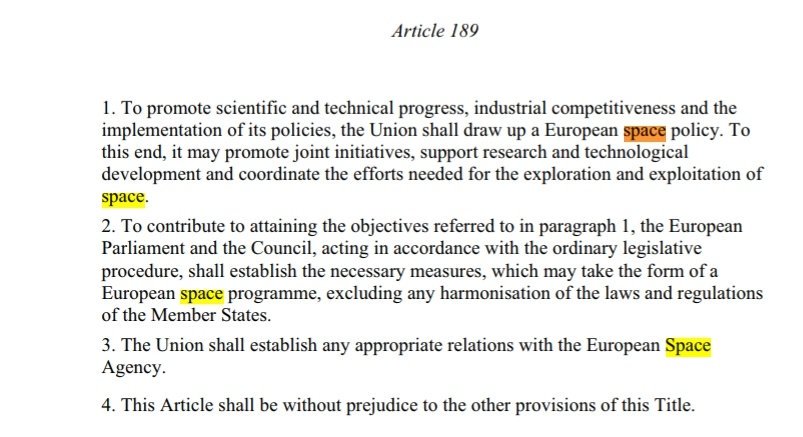
16/ Pause for illogical laughing at the space point, and basically everything else so far.
But this five year mission is nearly over...
But this five year mission is nearly over...

17/ Points 25 and 26: UK contribution and rebates aren't set out in the Treaties, but the separate own resources decision. It can only be amended by unanimity with ratification of national parliaments.
Now on to the additional points in alternative versions of this drivel.
Now on to the additional points in alternative versions of this drivel.
18/ In a Twitter thread version, it's claimed that the UK would lose its opt outs from the single currency and Schengen under the withdrawal agreement transition period.
Fact check says: pants on fire
Fact check says: pants on fire

19/ There's another version fully reproduced here, with extra wingnut claims at the end: google.com/url?sa=i&sourc…
20/ The state of this. Yeah, there will be an EU law requiring crime to increase 59% a year. What if people are too lazy to go out and increase crime by that much? Well, I guess they could make it a crime not to be a criminal...
Plus the anti-semicolonism here is offensive
Plus the anti-semicolonism here is offensive

21/ Sure because fines for every criminal offence except murder is on top of the legislative agenda.
(If this absurd nonsense was real, the UK opt out from justice and home affairs laws would apply anyway)
(If this absurd nonsense was real, the UK opt out from justice and home affairs laws would apply anyway)

22/ Indeed, the opposite is true. Here's an excerpt from an EU law requiring custodial sentences to be available for child abuse. Similar laws apply to trafficking in persons, terrorism, organised crime, "cybercrime" and several other crimes. 

23/ I hope that's sufficient to show the absurdity of this crap. Of course, the punch line is that some ERG claims are only slightly less bat****. // 

• • •
Missing some Tweet in this thread? You can try to
force a refresh






